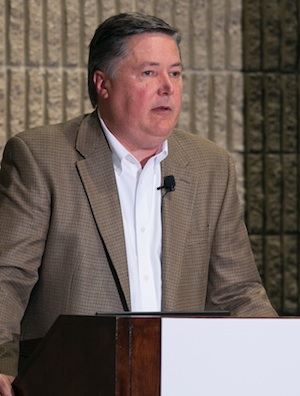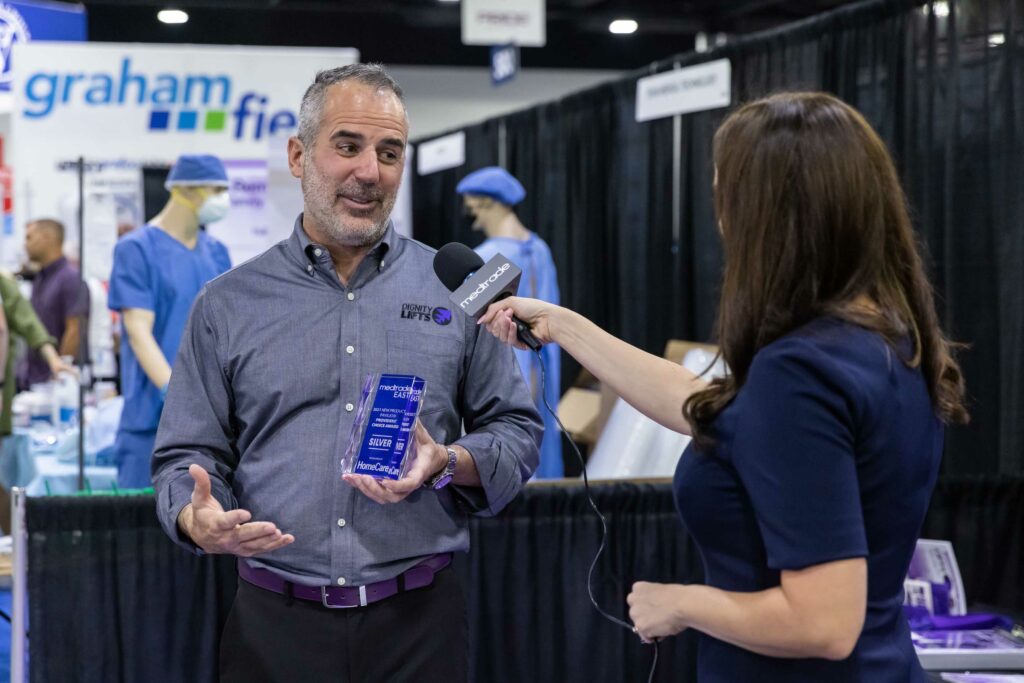WASHINGTON, D.C. – Representatives Charlie Crist (D-FL) and Tom Suozzi (D-NY) recently introduced H.R. 7676—the Home Modification for Accessibility Act. If enacted, the legislation would provide tax incentives to homeowners to proactively update their houses for aging in place.
“Sales will grow if consumers make their homes accessible before they are in a health crisis,” says Louis Tenenbaum, co-founder of the HomesRenewed Coalition. “Additional benefits and health cost savings will grow too. This bill has the power to overcome cost-related hesitations and grow the market for modifications. Remember how quickly the market for solar installations and hybrid cars grew from incentives? This bill is modeled after those successes.”
Legislation can be a long and winding road, but what would be the impact if this bill actually made it into law? Medtrade Monday asked for a variety of opinions.
 “The recently introduced Home Modification for Accessibility Act (H.R. 7676) is a long overdue acknowledgement that aging in place is here to stay for at least the next 30 years. The sky-high cost of assisted living, combined with caregiver shortages and increasing life spans, makes it all but certain that home will be the only (and in many cases the preferred) option for many aging baby boomers. Incentivizing safe and functional homes makes complete sense. Our industry should be prepared to be a good partner in this effort.” — Stephen Ackerman, CEO, Spectrum Medical, Silver Spring, Md.
“The recently introduced Home Modification for Accessibility Act (H.R. 7676) is a long overdue acknowledgement that aging in place is here to stay for at least the next 30 years. The sky-high cost of assisted living, combined with caregiver shortages and increasing life spans, makes it all but certain that home will be the only (and in many cases the preferred) option for many aging baby boomers. Incentivizing safe and functional homes makes complete sense. Our industry should be prepared to be a good partner in this effort.” — Stephen Ackerman, CEO, Spectrum Medical, Silver Spring, Md.
“There are 78 million Baby Boomers retiring at the rate of 10,000 per day. Most Boomers are going to live long lives and want to remain independent. The Home Modification for Accessibility Act follows the lead of prior legislation that incentivized investments in solar installations and hybrid automobiles. DME suppliers are on the front line in terms of providing care in the home. DME suppliers are seeking ways to diversify away from taking Medicare assignments. If the Act becomes law, DME suppliers should be on the forefront in offering home modification services. Suppliers can do so through employees and/or independent contractors. Not only can DME suppliers offer home modification services, but they can offer state-of-the-art equipment for seniors to use in their modified homes.” — Jeffrey S. Baird, JD, Brown & Fortunato

“NCART is fully supportive of the Home Modification for Accessibility Act. Being able to safely stay at home is a right all Americans should have. The passage of this bill will support that right and bring much needed assistance and benefits to senior citizens and people with disabilities. It will not only improve a person’s quality of life and independence, it will also help reduce healthcare costs through decreasing home injuries, hospitalizations, and caregiver needs.” — Donald E. Clayback, executive director, National Coalition for Assistive and Rehab Technology (NCART)
“As everyone in the HME business knows, we as an industry have the answer to save Medicare millions of dollars. Home modifications are the answer and it can be as simple as a commode riser and rails to keep someone from falling getting off the toilet, a shower chair, or much more advanced modifications like roll-in showers and wider doors to get wheelchairs through. In any case, we as a society need to make it easier and less costly by making sure this H.R. 7676 gets passed. This is just the beginning, but you have to start somewhere.” — Don Dobbins, owner, Heritage Home Medical Equipment, Inc, Wichita Falls, Tex.
 “This is a great bill. It makes total sense to allow people to withdraw funds from their 401(k) or retirement funds—tax free—to upgrade their homes and make them more accessible. In turn, this will save the government astronomically—while allowing mom and dad to be able to stay in their own home, as opposed to being put in a home.” — John Gallagher, vice president, Government Relations, VGM & Associates, Waterloo, Iowa
“This is a great bill. It makes total sense to allow people to withdraw funds from their 401(k) or retirement funds—tax free—to upgrade their homes and make them more accessible. In turn, this will save the government astronomically—while allowing mom and dad to be able to stay in their own home, as opposed to being put in a home.” — John Gallagher, vice president, Government Relations, VGM & Associates, Waterloo, Iowa
“There is already a robust market for home improvements, and for some of our members it’s one of the more profitable markets they serve. If this bill becomes law, that market will expand exponentially, creating a wonderful opportunity for them and others who are prepared to take advantage of the possibilities it would create.” — Michael Hamilton, executive director, Alabama Durable Medical Equipment Association

“This seems like a fairly decent idea because so many people want to age in place. The limit is $30,000 which seems like enough money to complete just about any modifications needed for safety and accessibility, without allowing luxury spending. I’m not sure if the bill has any provisions for adjustment due to cost of living, but I hope it does. These bills tend to stay in place a long time and 20 years from now $30,000 might not buy you the stair lift you need. Our products are typically $1499—much less than the limit. You can actually already purchase Dignity Lifts pre-tax dollars by using an HSA. This bill will likely be great for the home modification industry, and we have dealers and customers in that area so I imagine it will allow us to help more people. On the flipside, I wonder if this type of legislation might invite a lot of abuse. Who is to say that someone’s new zero-entry shower wasn’t just a new shower? Did they get a new deck when they really only needed a railing?” — Tom Nardone, president, Dignity Lifts, A division of PriveCo Inc.
“Since our industry already supports and provides products and services allowing people to stay in their homes, if this bill passes it could be a win-win for our seniors and patients with disabilities. Baby boomers are fast retiring and their homes are not constructed to provide the safest environment for an elderly or disabled person. Unfortunately falls and accidents happen and could add a tremendous financial burden to many families. This bill will provide a tax credit so families can prepare and provide a safe home for their loved ones. If we look at all the services a DME supplier already provides adding this will benefit everyone. Being able to tell families that this tax credit is available to them and that they have options to help the family get what they need will only enhance their services.” — Barb Stockert, executive director, Big Sky Association of Medical Equipment Services

